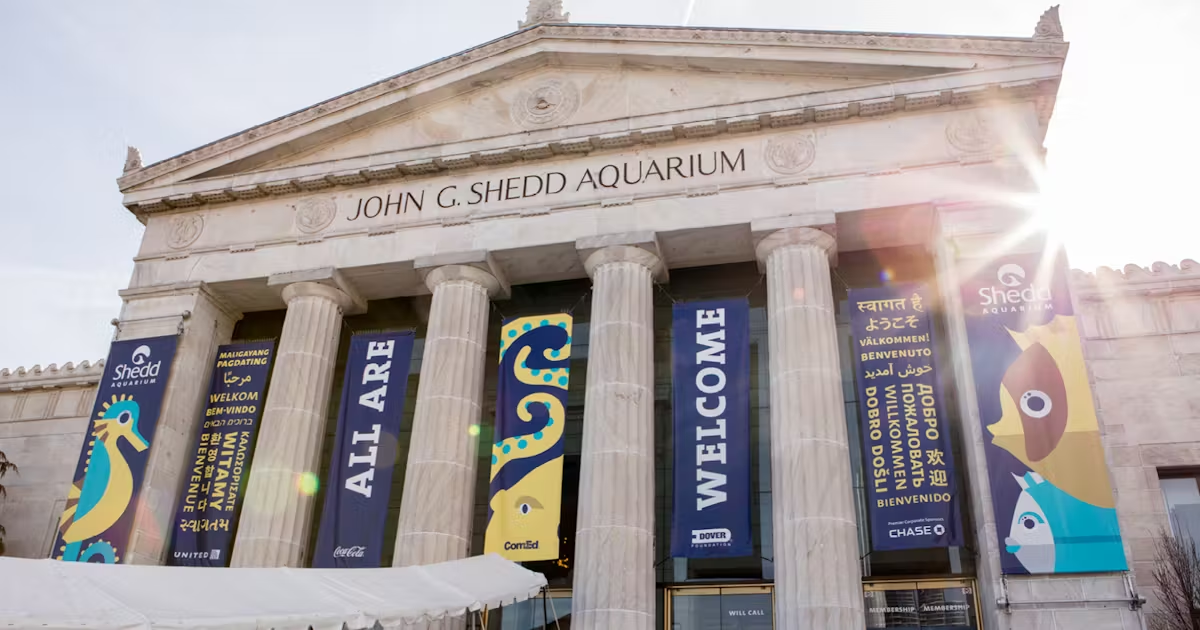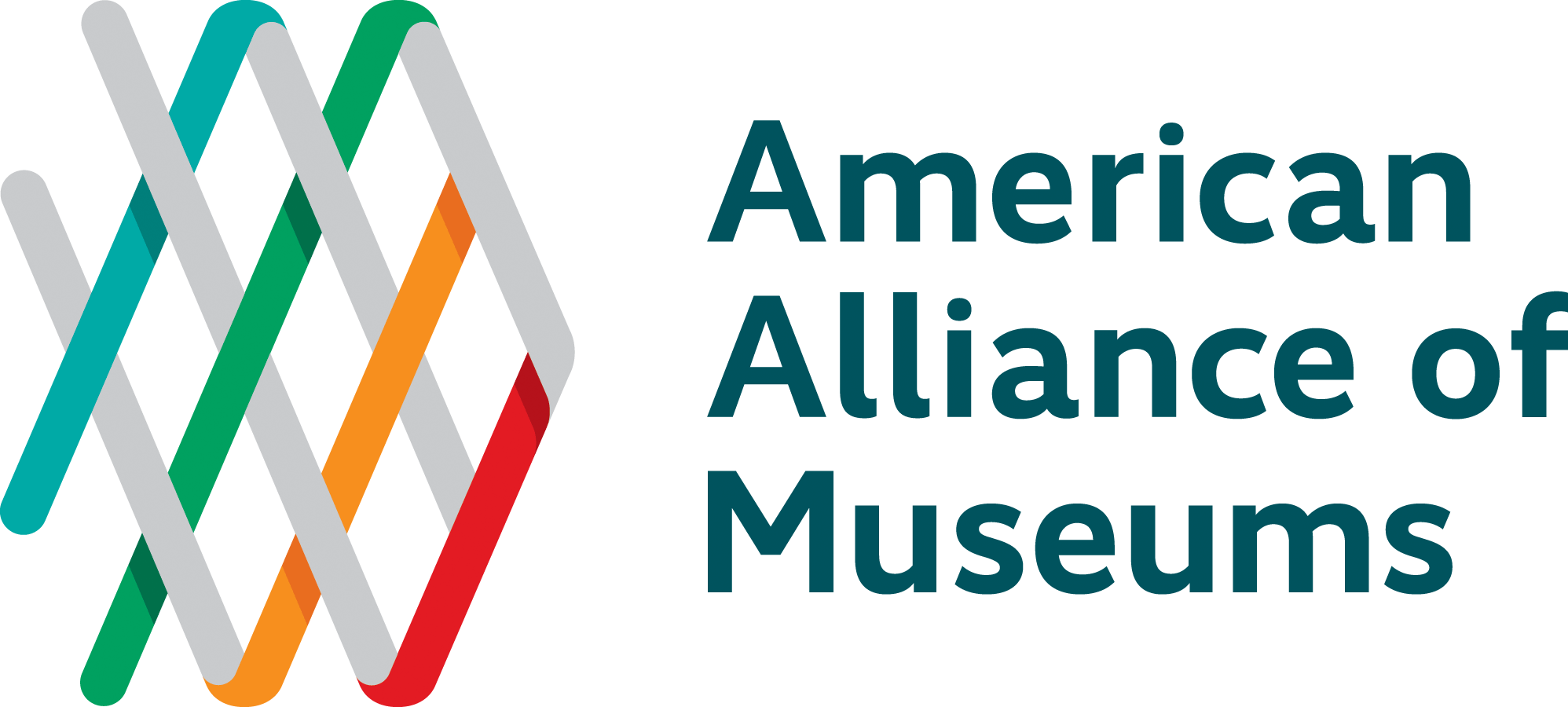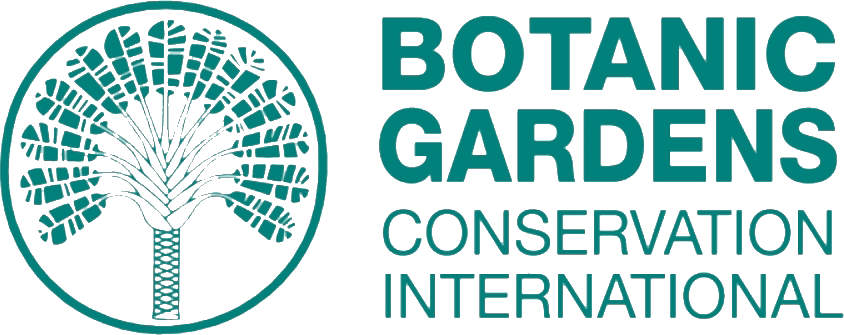シェッドでの持続可能性

はじめに
1930年に開業、 シェッド水族館 はイリノイ州シカゴにある458,000平方フィートの歴史ある水族館で、毎年200万人近いゲストを迎え、32,000頭以上の動物にサービスを提供している。シカゴと世界中のパートナーとともに、シェッド水族館は絶滅危惧種とその生息地を保護し、必要とする野生生物をリハビリテーションしている。さらに、持続可能な運営を通じて、野生生物と人々のために青く豊かな未来を確保し、そのために地域社会に力を与えている。
シェッド社は、日常業務に環境に配慮した慣行を導入している先進的な機関のひとつとして、資源消費の削減から戦略的な資金投入に至るまで、さまざまな行動をとってきた。エネルギー使用量を大幅に削減し、水使用量を半分に削減し、廃棄物の埋め立て転換率80%を達成しただけでなく、あらゆるレベルの職員の間で、環境保全と持続可能性を重視する社内の文化が築かれている。

水
水族館では、生息地のために約500万ガロンの海水と淡水を管理している。この水は濾過、リサイクル、再利用され、生息地間の水移送メカニズムによって廃棄物を最小限に抑え、水族館は年間約200万ガロンの水を節約している。
さらにシェッド水族館では、コンデンサー水システムの機械的改善と、屋根から年間60万ガロン以上の雨水を集めることにより、大幅な節水を続けている。集められた雨水は、水族館の屋根のコンデンサーシステムで利用され、動物や来館者を含む水族館全体を夏の間涼しく保っている。

廃棄物
シェッド社は毎年、リサイクルや堆肥化の取り組みを通じて、平均80%の廃棄物を埋立地から転換している。これらの取り組みは、さまざまな利害関係者との協力によって達成されています:
- 訪問者 廃棄物の最初のろ過は、来館者が水族館にいる間に行われ、廃棄物を3つの流れに分ける。
- スタッフとボランティア シェッドには、スタッフやボランティアが使用済みの品物、衣類、電子機器、電球、インクカートリッジ、ラテックスやニトリルの手袋などを持ち込める「リサイクル・ロー」がある。
- フードコート: シェッド水族館で使用される紙製品はすべて堆肥化可能であり、廃棄物管理パートナーとの綿密な堆肥化プロセスを経ている。
- 地元の大学生:シェッドの厨房では、地元大学の学生から使用済み油脂を回収し、バイオディーゼルに転換してシャトルバスの動力源とし、自家用車の削減を強化している。
- フードデリバリーのパートナー: シェッド社は、毎日の食品配送に木製パレットを使用したり、プラスチック製の配送資材を最長10年間再利用してからリサイクルしたりしている。
- 店舗販売のパートナー: シェッドは、2025年夏までに使い捨てプラスチックを使用せず、デザイン、製造、出荷を通じて廃棄物削減を改善する計画だ。100%リサイクル素材を使用した製品の販売、プラスチック製パンの詰め物の廃止、プラスチックの代わりに段ボール製の梱包材を使用することなどは、すべてこの目標をサポートするものである。

エネルギー
シェッド水族館はエネルギー効率における強力なリーダーです。スマートビル運営を通じて、水族館は全体のエネルギー使用量を22%減少させた。これらの成果は、スマートビル運営を通じて大きな変化を起こした結果である。アップグレードには、水族館の照明のLED化、265キロワットの太陽電池アレイの海洋水族館屋上への設置、冷水プラントの導入などが含まれる。さらにシェッド社は、水族館の電気使用量をリアルタイムで監視する電気サブメーターを運営ダッシュボードに活用している。これらの技術革新は、エネルギー効率を向上させるだけでなく、動物たちの健康的な環境保全にも役立っている。

自然保護とコミュニティ参加
自然保護の原則を日常業務に取り入れるだけでなく, シェッドはこのような努力を水族館の外にも広げている。の熱心なメンバーとして 水族館保全パートナーシップシェッド社は、温室効果ガス排出量の削減と環境持続可能性の推進に取り組み続けている。 シェッド社はまた #F私たちの未来を形作る このキャンペーンは、水生海洋生物の保護と沿岸生態系の回復を目的とした、重要かつ重要な政策を支援するものである。
シェッドのコアバリューのひとつは、コミュニティへの参加である。つまり、気候変動と闘うには、組織と一般市民の両方からの協力が必要だと考えているのだ。シェッド社は、以下のような様々なプログラムを提供している。 アクション・デイズ参加者は、ビーチの清掃、沿岸生息地の復元、在来の水生種を使った河川の植栽などの体験型活動を通じて、環境との有意義なつながりを築くことができる。シェッド社では、体験型活動に加え、消費と廃棄を減らすための方法を学ぶための資料も提供している。このような取り組みを通して、シェッド水族館は水族館だけでなく、誰もが持続可能性と保全に関わることができる方法を示す努力を続けている。

行動への呼びかけ
シェッド水族館の施設・セキュリティ担当上級副社長、ボブ・ウェンゲル、 最近の記事 と題している: 企業への呼びかけ持続可能性のためのステップアップ 私たちの集団的な気候変動に対する責任について。
自然保護や持続可能性規制に関する国の政策が2025年に向けて変化し続ける一方で、ビジネス界は、気候変動イノベーションの目に見えるリーダーとなるための影響力と能力を保持している。
デロイトの2023年レポートは、ほとんどのビジネスリーダーが経済成長と環境に優しい目標を同時に達成することが可能であることに同意していることを示している。シェッド水族館は、持続可能性は達成可能であるだけでなく、ビジネスの成功に不可欠であることを強調している。若い消費者の意識が高まり、彼らが支持し、関与するブランドに対して、透明性、環境スチュワードシップ、責任感を求めるようになっているからだ。
シェッド氏は経済界に行動を促す。計画、投資、そして集団的な考え方の転換が不可欠である。計画、投資、そして集団的な考え方の転換が不可欠です。NGOとの協力や国連の持続可能な開発目標との連携は、貴重な指針を与えてくれる。







コメントを残す